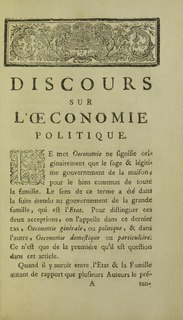
Niccolò di Bernardo dei Machiavelli was an Italian diplomat, politician, historian, philosopher, humanist, writer, playwright and poet of the Renaissance period. He has often been called the father of modern political science. For many years he served as a senior official in the Florentine Republic with responsibilities in diplomatic and military affairs. He wrote comedies, carnival songs, and poetry. His personal correspondence is renowned by Italian scholars. He worked as secretary to the Second Chancery of the Republic of Florence from 1498 to 1512, when the Medici were out of power. He wrote his best-known work The Prince in 1513, having been exiled from city affairs.
An ideology is a collection of normative beliefs and values that an individual or group holds for other than purely epistemic reasons. The term is especially used to describe a system of ideas and ideals which forms the basis of economic or political theory and policy. In political science it is used in a descriptive sense to refer to political belief systems. In social science there are many political ideologies.

Alexander Bain was a Scottish philosopher and educationalist in the British school of empiricism and a prominent and innovative figure in the fields of psychology, linguistics, logic, moral philosophy and education reform. He founded Mind, the first ever journal of psychology and analytical philosophy, and was the leading figure in establishing and applying the scientific method to psychology. Bain was the inaugural Regius Chair in Logic and Professor of Logic at the University of Aberdeen, where he also held Professorships in Moral Philosophy and English Literature and was twice elected Lord Rector of the University of Aberdeen.
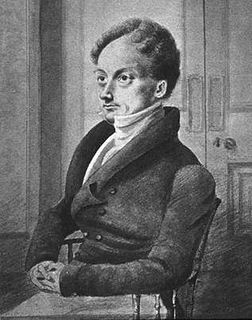
James Mill was a Scottish historian, economist, political theorist, and philosopher. He is counted among the founders of the Ricardian school of economics. His son, John Stuart Mill, was also a noted philosopher of liberalism, utilitarianism and the civilizing mission of the British Empire.
Eudaimonia, sometimes anglicized as eudaemonia or eudemonia, is a Greek word commonly translated as happiness or welfare; however, "human flourishing or prosperity" has been proposed as a more accurate translation. Etymologically, it consists of the words "eu" ("good") and "daimōn" ("spirit"). It is a central concept in Aristotelian ethics and political philosophy, along with the terms "aretē", most often translated as "virtue" or "excellence", and "phronesis", often translated as "practical or ethical wisdom". In Aristotle's works, eudaimonia was used as the term for the highest human good, and so it is the aim of practical philosophy, including ethics and political philosophy, to consider what it really is, and how it can be achieved.

Thomas Hill Green, known as T. H. Green, was an English philosopher, political radical and temperance reformer, and a member of the British idealism movement. Like all the British idealists, Green was influenced by the metaphysical historicism of G. W. F. Hegel. He was one of the thinkers behind the philosophy of social liberalism.
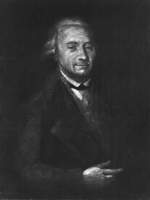
Melchiorre Cesarotti was an Italian poet and translator.
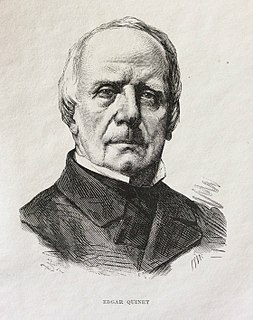
Edgar Quinet was a French historian and intellectual.

Count Leopoldo Cicognara was an Italian art collector and art historian.

Benedetto Croce was an Italian idealist philosopher, historian and politician, who wrote on numerous topics, including philosophy, history, historiography and aesthetics. In most regards, Croce was a liberal, although he opposed laissez-faire free trade and had considerable influence on other Italian intellectuals, including both Marxist Antonio Gramsci and fascist Giovanni Gentile. Croce was President of PEN International, the worldwide writers' association, from 1949 until 1952. He was nominated for the Nobel Prize in Literature sixteen times.

Giovanni Gentile was an Italian neo-Hegelian idealist philosopher, educator, and fascist politician. The self-styled "philosopher of Fascism", he was influential in providing an intellectual foundation for Italian Fascism, and ghostwrote part of The Doctrine of Fascism (1932) with Benito Mussolini. He was involved in the resurgence of Hegelian idealism in Italian philosophy and also devised his own system of thought, which he called "actual idealism" or "actualism", and which has been described as "the subjective extreme of the idealist tradition".
Phronesis is an Ancient Greek word for a type of wisdom or intelligence. It is more specifically a type of wisdom relevant to practical action, implying both good judgement and excellence of character and habits, or practical virtue. Phronesis was a common topic of discussion in ancient Greek philosophy.

Adam Heinrich Müller was a German publicist, literary critic, political economist, theorist of the state and forerunner of economic romanticism.
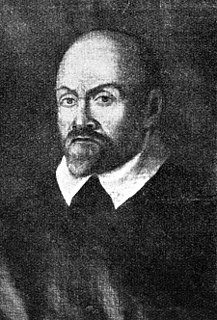
Giovanni Botero was an Italian thinker, priest, poet, and diplomat, best known for his work Della ragion di Stato . In this work, Botero argued against the amoral political philosophy associated with Niccolò Machiavelli's The Prince, not only because it lacked a Christian foundation but also because it simply did not work. Basing his political and economic ideas primarily on the thought of Thomas Aquinas, Botero argued for a more sophisticated relationship between princes and their subjects, one that would give the people more power in the political and economic matters of the state. In this way, Botero foreshadowed the thought of later liberal thinkers, such as John Locke and Adam Smith.

Melchiorre Delfico was an Italian economist

Antonio Genovesi was an Italian writer on philosophy and political economy.
Vincenzo Cuoco was an Italian writer. He is mainly remembered for his Saggio Storico sulla Rivoluzione Napoletana del 1799. He is a considered one of the precursors of Italian liberalism and the realist school. Cuoco adapted the critique of political rationalism of Edmund Burke and Joseph de Maistre for liberal ends, and has been described as a better historian than either of them. He influenced many subsequent Italian intellectuals, from Ugo Foscolo and Alessandro Manzoni to Bertrando and Silvio Spaventa to Benedetto Croce and Antonio Gramsci.
Rodolfo Benini was an Italian statistician and demographer.
Federici Nora 27 April 1910, Rome (Italy) – 9 September 2001, Grottaferrata, Rome (Italy) was an Italian statistician.
Anastastio Cuschieri (1872–1962) was a Maltese poet, politician, and minor philosopher. He held the Chair of Philosophy at the University of Malta (1901–39). In philosophy he was mostly interested in ethics.



